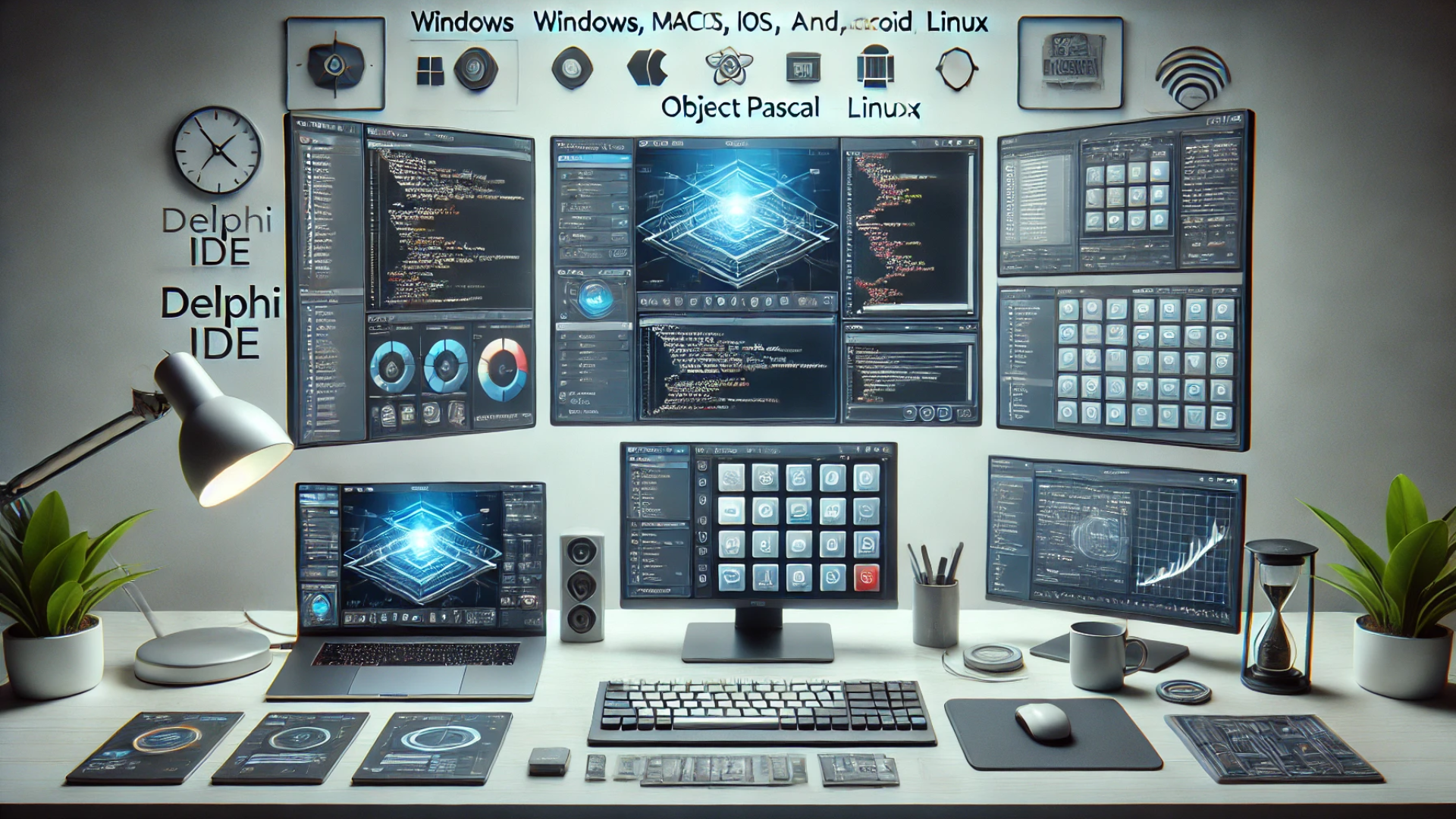
Delphi, an integrated development environment (IDE) for rapid application development, has long been a favorite among developers for creating robust and high-performance software. Whether you’re building desktop, mobile, or web applications, Delphi offers a powerful set of tools to streamline the development process. But what exactly makes Delphi so unique, and how can you leverage it to its full potential? Let’s dive in and explore!
What is Delphi?
Delphi, originally developed by Borland and now maintained by Embarcadero Technologies, is an IDE for the Object Pascal programming language. Launched in 1995, Delphi quickly gained popularity for its simplicity, flexibility, and speed. It allows developers to create applications that can run on various platforms such as Windows, macOS, iOS, Android, and Linux.
Key Features of Delphi
Delphi’s strength lies in its rich set of features that cater to both beginners and seasoned developers:
- Cross-Platform Development:
Delphi’s FireMonkey (FMX) framework allows you to develop applications for multiple platforms from a single codebase. This means you can write your code once and deploy it across Windows, macOS, iOS, Android, and Linux. - Visual Component Library (VCL):
The VCL is a set of visual components used in Delphi to design user interfaces. It’s particularly useful for Windows application development, providing a drag-and-drop environment for rapid UI creation. - Database Connectivity:
Delphi offers robust database support through its Data Access Components (DAC), allowing seamless integration with a wide range of databases like MySQL, Oracle, SQL Server, and PostgreSQL. - RAD Studio Integration:
Delphi is part of the RAD Studio suite, which includes tools for rapid application development. This integration provides additional resources and tools that can significantly speed up the development process. - Rich Library Support:
Delphi comes with an extensive library of components and classes, offering solutions for various tasks such as file handling, networking, and multimedia processing. - High-Performance Native Code:
Delphi compiles to native machine code, which means your applications run with maximum efficiency and speed on the target platform.
Getting Started with Delphi
If you’re new to Delphi, here’s how you can get started:
Installing Delphi:
- Download the Delphi IDE from Embarcadero’s official website.
- Follow the installation wizard to set up the environment.
- Choose your preferred settings and license options.
Exploring the IDE:
- Familiarize yourself with the Delphi IDE layout. The main components include the Code Editor, Form Designer, Object Inspector, and Component Palette.
- Try creating a simple “Hello, World!” application to understand the basics of project creation, compiling, and running your first program.
Understanding Object Pascal:
- Delphi uses Object Pascal as its primary programming language. If you’re not familiar with it, start by learning the syntax, data types, control structures, and how to work with objects and classes.
Building Your First Application:
- Start with a simple GUI application. Use the VCL or FMX components to design your interface, and write the necessary event handlers to add functionality.
- Experiment with Delphi’s powerful features like database integration, multi-threading, and cross-platform deployment.
Advanced Delphi Techniques
Once you’re comfortable with the basics, you can start exploring more advanced Delphi features:
Custom Components:
- Create your own components to extend Delphi’s functionality. Custom components can be reused across multiple projects, saving time and effort.
Multi-threading and Parallel Programming:
- Delphi provides built-in support for multi-threading, allowing you to build responsive and efficient applications. Use the TThread class or the Parallel Programming Library (PPL) to manage concurrent tasks.
Memory Management:
- Understanding Delphi’s memory management is crucial for building high-performance applications. Delphi uses automatic reference counting (ARC) on mobile platforms and manual memory management on others. Knowing when to allocate and free memory manually is key to avoiding leaks and ensuring smooth performance.
Database Applications:
- Delphi’s powerful database components, like FireDAC, make it easy to connect to and manipulate databases. Learn how to perform CRUD (Create, Read, Update, Delete) operations, manage transactions, and use SQL queries effectively within your Delphi applications.
Cross-Platform Development:
- With the FireMonkey framework, you can create visually stunning applications that run on multiple platforms. Learn how to handle platform-specific features and differences, such as file systems, sensors, and user interfaces.
Best Practices in Delphi Programming
To get the most out of Delphi, follow these best practices:
Modular Code Design:
- Keep your code modular by breaking down functionality into smaller, reusable units. This makes your code easier to maintain and test.
Error Handling:
- Implement robust error handling using Delphi’s exception management features. Use try…except blocks to catch and handle errors gracefully.
Optimize for Performance:
- Use profiling tools to identify bottlenecks in your application. Optimize critical sections of your code and manage resources efficiently.
Stay Updated:
- Delphi is continually evolving. Stay informed about the latest updates, new components, and best practices by following the Delphi community, blogs, and forums.
Conclusion
Delphi remains a powerful tool for developers looking to build high-performance, cross-platform applications. Its rich set of features, combined with the simplicity of the Object Pascal language, makes it a versatile choice for both novice and experienced developers. Whether you’re developing desktop software, mobile apps, or database-driven applications, Delphi provides the tools and flexibility you need to succeed.
By mastering Delphi, you can unlock the full potential of rapid application development, creating software that’s not only efficient but also scalable and maintainable. So why wait? Dive into Delphi today and start building the next generation of innovative applications!

